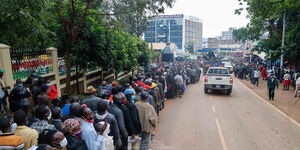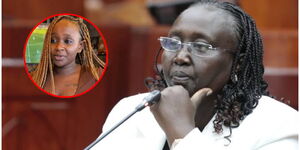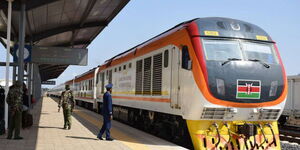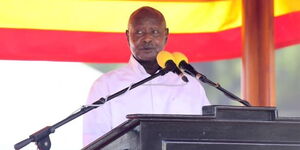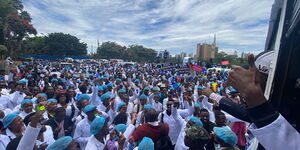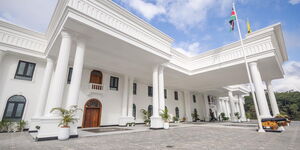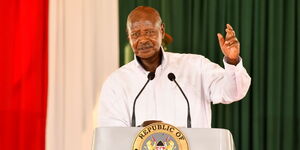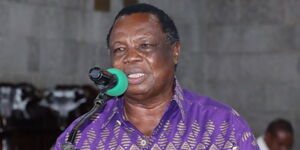Deputy President, William Ruto, has outlined seven sectors Kenya Kwanza coalition will focus on if he wins the August 9 General Election.
Speaking on Thursday, June 30, during the launch of his manifesto, the second in command shifted away from President Uhuru Kenyatta's Big Four Agenda to focus on seven sectors that he insisted needed fresh intervention to raise the country's economy but within the framework of the bottom-up economic model.
Addressing delegates and other top officials at Kasarani Stadium in Nairobi, Ruto listed agriculture, micro, small and medium enterprises (MSMEs), housing and settlement, healthcare, a digital superhighway, creative economy, environment, and climate change and service economy as his top pillars.
The former Eldoret North Member of Parliament collectively committed to spending Ksh1 trillion over five years to bring all his projects to completion and fruition.
The leader of the United Democratic Alliance (UDA) party centered his seven-point manifesto on smallholder agriculture and the informal sector which he has promised to pump in Ksh500 billion.
"We have chosen these sectors guided by six parameters including ability to bring down the cost of living, eradicate hunger, create jobs and increase our tax base," Ruto stated.
In the agricultural sector especially in dairy farming, Ruto committed to revitalise the sector by pumping Ksh8.8 billion see Kenya produce excess milk to not only meet the local demand, but also an extra one billion litres for export.
To turn around the sector Ruto promised to provide adequate affordable working capital to farmers through better governed and revitalized cooperative societies, deploy modern agricultural risk management instruments that ensure farming is profitable and income is predictable through a well-defined Guaranteed Minimum Returns (GMR) scheme and transform 2 million poor farmers from food deficit to surplus producers through input finance and intensive agricultural extension support, with a target minimum productivity revenues per acre.
In the MSMEs sector Ruto promised to set aside Ksh250 billion which will contribute directly to supporting a revolving hustler fund and business development services for the registered SMEs.
The funds will enhance the affirmative funds whose continued existence will be guided by their competitiveness and efficiency.
In the housing sector, the second in command noted that the requirement for new urban housing deficit is estimated at 250,000 units a year, against the production of 50,000 units, translating to a deficit of 200,000 units.
The Kenya Kwanza government promised to invest Ksh250 billion of which the budget commitment is Ksh50 billion and the rest will be financed by pension funds and partnerships with the private sector.
He committed to establish a Settlement Fund, similar to the one that was used to acquire land from settler farmers after independence, to resettle up to one million desperate landless families at the Coast and other parts of the country.
In the health care sector, Ruto explained that to ensure accessible and quality service delivery in health, a number of factors need to be considered which include Healthcare Leadership and Governance; Health Services Delivery; Human Resources for Health (HRH); Health Financing; Commodity Supply; Health Infrastructure; Information, Communication and Technology; and Monitoring and Evaluation of Health Services.
In that sector, Ruto vowed to commit to using the budgetary allocation to make it a reality.
In the ICT and creative economy, the second in command increase and enhance broadband connectivity across the country through the construction of 100,000km of fiber optic connectivity network to accelerate the development of Konza Technopolis.
He committed Ksh200 billion to fund all the proposals under that sector.
Ruto also explained the need to revamp the manufacturing sector in the country.
"Kenya Kwanza is confident that transformation of manufacturing through the bottom up approach is a win win for the industry, for the people and for the government. The value chain approach that we have adopted enables us to analyze our economy from a competitiveness angle and to address the bottlenecks that impede growth in a deliberate manner," he stated.

